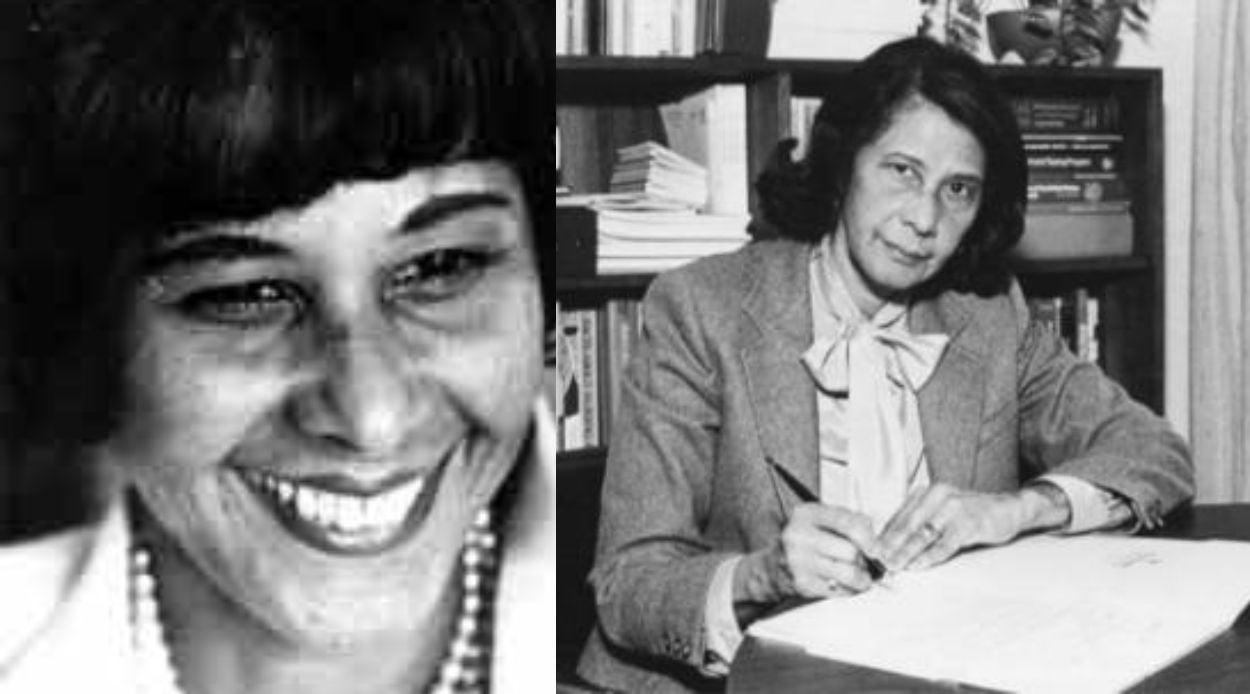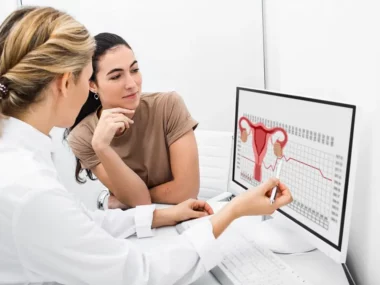Ildaura Murillo-Rohde’s vision was a path for Latino and Hispanic nurses to pursue their education to serve their community and help themselves.
She had a key role in the 1975 founding of the National Association of Hispanic Nurses (NAHN). During Rohde’s professional life, she has fought for the inclusion of Spanish and Latina nurses at all levels of the nursing profession. Born in Panama, Murillo-Rohde immigrated to the United States in 1945. In San Antonio, Texas, where she began her nursing career, she saw few nurses who could communicate effectively with their predominantly Hispanic patients.
The observation spurred her to earn a bachelor’s, master’s, and a doctorate in psychiatric mental health nursing from Columbia University and New York University, respectively. Years later, when Murillo-Rohde began evaluating funds for education and research in the 1970s, the same experience came back to haunt her. She fought for reform and representation after observing that there were few Latina nurses in academic settings or public politics.
A fellow of the American Academy of Nursing, Murillo-Rohde. She worked as a faculty member, professor, dean, and professor emerita at the SUNY School of Nursing in Brooklyn, New York.
Beginning of Her Career
Rohde enrolled at the Medical and Surgical Hospital School of Nursing in 1948 to earn a nursing diploma. She finished her degree and started working as a nurse in San Antonio, Texas.
To help the community, she noticed a shortage of Hispanic nurses, which is stated in her report for NAHN. She had a reality check from this occurrence, yet she continued with her study. In 1953, Dr. Murillo- Rohde graduated from Columbia University with a degree in psychiatric mental health nursing.
In Bellevue Psychiatric Hospital, she started working with Puerto Rican veterans of the Korean War. She returned to New York to start the first psychiatric section of Elmhurst General Hospital in Queens after being employed by the psychiatric division of Wayne County General Hospital in Michigan.
Dr. Rohde wanted to quench her thirst for knowledge. Therefore, she joined New York University to obtain a master’s and a Ph.D. In 1971, she made history by becoming the first Hispanic nurse to receive a Ph.D.
Hispanic Health Care International
Since its inception, NAHN has worked broadly to improve healthcare delivery and outcomes for the Hispanic community in the United States. Today, the organization sponsors an award for distinction in nursing scholarship, research, and practice, as well as a scholarship for Hispanic students enrolled in nursing programs that lead to licensure.
Hispanic Health Care International, another publication of NAHN, presents research and scholarly work on topics important to both the US and worldwide Hispanic communities. Former HHCI editor-in-chief Judith Aponte is an Associate Professor of Nursing at Hunter College and a 2012 NYAM Fellow.
Also Read: Asus 2-in-1 q535 Laptop Review 2023 | Specifications, Price, Performance
In addition to being the organization’s founder and first president, Murillo-Rohde was a specialist in marital and family therapy and psychotherapy, and she held several administrative positions in higher education, including dean of the college of nursing at SUNY Downstate Medical Center. By serving as the Guatemalan government’s WHO psychiatric adviser and launching a pilot program to train staff in psychiatric treatment, Murillo-effect Rohde’s was felt globally as well. Also, she represented the International Federation of Commerce and Professional Women as Permanent UN Representative to UNICEF. At the age of 89, Murillo-Rohde died away in her home in Panama in 2010.
What is Dr. Ildaura Murillo Rohde’s Age
Dr. Rohde’s birthplace was Panama, and she was born on September 6, 1920. She went to the country when she was 25 years old, and she lived there for most of her life.
According to this information, she would be 102 years old right now. But sadly, she passed away in Panama on September 5, 2010. After looking at her early life, we’ll discuss more her demise.
Founder of the National Association of Hispanic Nurses
Ildaura Murillo-Rohde (1920–2010) was a Panamanian American nurse, academic, and health policy advocate who championed the unique healthcare needs of Hispanic populations. Murillo-Rohde earned a nursing diploma from the Medical and Surgical Hospital School of Nursing in San Antonio, Texas, before obtaining an undergraduate degree in the teaching and supervision of psychiatric nursing from Teachers College, Columbia University, in 1953. Upon graduation, she joined Bellevue Psychiatric Hospital, working with patients diagnosed with “Puerto Rican syndrome,” the name for a condition first used to describe traumatized Puerto Rican soldiers in the Korean War. Wayne County General Hospital’s Psychiatric Division in Michigan then recruited her before she returned to New York to open Elmhurst General Hospital’s first psychiatric division in Queens. In 1971 she became the first Hispanic nurse to earn a Ph.D. from New York University. Funding of NAHN.
Her Husband?
We have discussed how Dr.Rohde was named the Living Legend of the American Academy of Nursing in 1994.
However, if we talk about her marriage and personal life, the details about Ildaura’s husband are not available online.
Since her services as a caregiver and instructor in the nursing and medical fields are commendable, we believe she cared the same way about her family.
Her Children
Like her husband, Dr. Murillo Rohde has not revealed anything about her children. Even though her family has mainly shied away from the spotlight, we believe they must have been quite proud of her achievements and everything she accomplished for her community.
Contributions of Murillo-Rohde to Health
Dr. Ildaura Murillo-Rohde has made significant contributions to the field of health through her research and advocacy efforts. One of her notable achievements is the development of a model for effective community-based diabetes management, which has been implemented in various countries across the globe. Her work in this area focuses on empowering individuals with diabetes and their families to take control of their health through education, support networks, and lifestyle changes.
In addition to her research on diabetes management, Dr. Murillo-Rohde has also worked extensively in the areas of women’s health and reproductive rights. She has been an advocate for improved access to family planning services and comprehensive sexual education programs, as well as an increased awareness of gender-based violence and its impact on women’s health. Her contributions in these areas have helped to shape policy decisions at both local and national levels.
Overall, Dr. Murillo-Rohde’s work represents a commitment to addressing some of the most pressing issues facing global public health today. Through her research, advocacy efforts, and dedication to improving healthcare outcomes for all individuals, she continues to be an influential figure in the field of health.
Early Life of Murillo-Rohde
Dr. Ildaura Murillo-Rohde was born on January 10, 1951, in San Jose, Costa Rica. She grew up in a family of six siblings and was the first to attend college. Her parents instilled in her a strong work ethic and encouraged her to pursue higher education despite financial limitations. Murillo-Rohde completed her undergraduate studies at the University of Costa Rica before moving to the United States for graduate school.
In 1973, she enrolled at Louisiana State University (LSU) to pursue a master’s degree in microbiology. During her time at LSU, Murillo-Rohde excelled academically and became involved in research projects examining bacterial pathogenesis and antibiotic resistance. After completing her master’s degree, she continued her studies at LSU and earned a Ph.D. in microbiology in 1979.
Following graduation, Murillo-Rohde accepted a postdoctoral position at Washington University School of Medicine where she continued studying bacterial pathogenesis with an emphasis on Chlamydia trachomatis infections. These early experiences shaped Murillo-Rohde’s passion for researching infectious diseases and ultimately led to her becoming an internationally recognized expert on sexually transmitted infections (STIs).
Murillo Rohde’s Impact Today
Dr. Ildaura Murillo-Rohde is a well-known figure in the field of education and psychology, having dedicated her life to advancing these fields through research and advocacy. Her work has had a significant impact on various aspects of society, including healthcare, education, and leadership development.
One area where Dr. Murillo-Rohde’s influence can be seen today is in the promotion of cultural competence in healthcare settings. Her research has shown that cultural differences can have a significant impact on patient outcomes and that healthcare professionals need to be aware of these differences if they are to provide effective care for all patients.
Similarly, Dr. Murillo-Rohde’s work on leadership development has been crucial in shaping modern approaches to management training. She advocates for a model that takes into account diversity and inclusion as key components of successful leadership, recognizing that organizations must embrace these values if they are to thrive in an increasingly globalized world.
Overall, Dr. Murillo-Rohde’s legacy continues to shape our understanding of important issues across multiple fields today. Her contributions serve as an inspiration for researchers and practitioners alike who seek to make meaningful changes in their respective areas of expertise.
Conclusion
In conclusion, the legacy of Dr. Ildaura Murillo-Rohde will be remembered for years to come. Her contributions to the fields of education and diversity were groundbreaking and influential, paving the way for future generations to continue building upon her work.
Dr. Murillo-Rohde’s focus on promoting multiculturalism and inclusivity in education was particularly noteworthy. Her efforts helped to create more equitable learning environments for students from all backgrounds, ensuring that everyone had an equal opportunity to succeed.
Overall, Dr. Murillo-Rohde was a true trailblazer who made a lasting impact on society through her tireless dedication and commitment to creating positive change. Her work serves as an inspiration for all those who seek to make a difference in the world around them, and she will be greatly missed by all who knew her or were touched by her legacy.
Also Read: TikTok Friends Discovermaliktechcrunch, the downside of having TikTok friends













